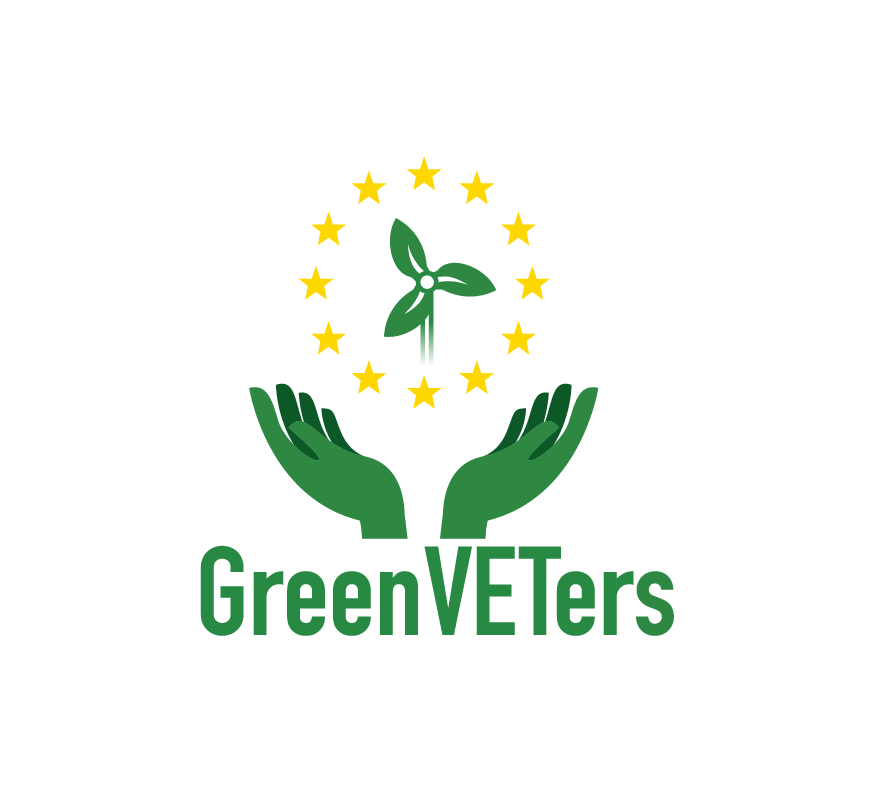Worksheet for Lesson 9:
The Implementation of the Green Deal via Citizen Deliberation for Sustainable Agriculture
Learning Objectives:
1. Students learn examples of deliberation topics in the EU regarding the Agriculture sector
Deliberation Topic: Greenhouse Gas (GHG) Emissions from livestock in the EU
Discussion prompts:
How can the EU tackle greenhouse gas emissions in its livestock sector to help reach 2030 climate targets? The livestock sector is accountable for 81-86% of the total agricultural GHG emissions when production, transport and processing are included. The principal sources of GHGs are enteric fermentation and total manure management. You may use the references listed below to create a more educated discussion.
Issue Stances:
• Reduction of consumption of livestock products
• Reduction of food waste
• Change the setting of production on grassland instead of grain-fed production
• Reduction of food waste
• Change the setting of production on grassland instead of grain-fed production
Issue Stances:
• European Commission (2020). Farm to Fork Strategy: For a fair, healthy and environmentally-friendly food system. https://food.ec.europa.eu/system/files/2020- 05/f2f_action-plan_2020_strategy-info_en.pdf
• European Commission, Directorate-General for Agriculture and Rural Development, Peyraud, J., MacLeod, M. (2020). Future of EU livestock : how to contribute to a sustainable agricultural sector? : executive summary, Publications Office. https://data.europa.eu/doi/10.2762/810306
• Mielcarek-Bocheńska, P., & Rzeźnik, W. (2021). Greenhouse gas emissions from agriculture in EU countries—state and perspectives. Atmosphere, 12(11), 1396.
• Verschuuren, J. (2022). Achieving agricultural greenhouse gas emission reductions in the EU post-2030: What options do we have?, RECIEL, 31, 246–257.
• European Commission, Directorate-General for Agriculture and Rural Development, Peyraud, J., MacLeod, M. (2020). Future of EU livestock : how to contribute to a sustainable agricultural sector? : executive summary, Publications Office. https://data.europa.eu/doi/10.2762/810306
• Mielcarek-Bocheńska, P., & Rzeźnik, W. (2021). Greenhouse gas emissions from agriculture in EU countries—state and perspectives. Atmosphere, 12(11), 1396.
• Verschuuren, J. (2022). Achieving agricultural greenhouse gas emission reductions in the EU post-2030: What options do we have?, RECIEL, 31, 246–257.
Discussion prompts:
Glyphosate is usually used as a broad-spectrum weed killer in agricultural practices to increase farm-level yield. However, glyphosate is absorbed on plant leaves and subsequently on soil, negatively affecting biodiversity and contributing to climate change. Glyphosate is currently approved in the EU until 15 December 2022. A 5-year authorisation was granted in November 2017, instead of the proposed 15 years. You may use the references listed below to create a more educated discussion.
Issue stances:
• Withdrawal of glyphosate from agricultural practices and investment in alternative weed control strategies
• Restrictive and regulated use of glyphosate in agriculture
• No change in current practices and renewal of its use
• Restrictive and regulated use of glyphosate in agriculture
• No change in current practices and renewal of its use
Sources that can be used:
• Wynn, S., & Webb, E. (2022). Impact assessment of the loss of glyphosate within the EU: a literature review. Environmental Sciences Europe, 34(1), 91. https://enveurope.springeropen.com/articles/10.1186/s12302-022-00667-3
• Sang, Y., Mejuto, J. C., Xiao, J., & Simal-Gandara, J. (2021). Assessment of glyphosate impact on the agrofood ecosystem. Plants, 10(2), 405.
• European Chemical Agency (ECHA) (n.d.). Glyphosate. https://echa.europa.eu/hot- topics/glyphosate
• Sang, Y., Mejuto, J. C., Xiao, J., & Simal-Gandara, J. (2021). Assessment of glyphosate impact on the agrofood ecosystem. Plants, 10(2), 405.
• European Chemical Agency (ECHA) (n.d.). Glyphosate. https://echa.europa.eu/hot- topics/glyphosate
Deliberation topic: Following organic or permaculture practices to increase soil quality and nutrients?
Discussion prompts:
Even though organic farming does not use chemical fertilisers or pesticides like conventional farming, it is still permitted to use non-organic agricultural ingredients found in the annexes of the EU legislation or have been tentatively authorised by an EU member state. On the other hand, permaculture relies only on natural fertilisers for crop yield based on a holistic energy efficiency system. The investment towards permaculture might be more expensive initially but more sustainable in the long run than the mass production offered by organic farming. You may use the references listed below to create a more educated discussion.
Issue stances:
Follow organic farming
Slowly adapt permaculture practices from conventional or organic farming Immediately adopt permaculture practices
Slowly adapt permaculture practices from conventional or organic farming Immediately adopt permaculture practices
Sources that can be used:
• de Tombeur, F., Sohy, V., Chenu, C., & Cornelis, J. T. (2018, April). Permaculture practices effect on soil fertility and organic matter distribution in aggregate-size classes. In EGU, European Geosciences Union General Assembly 2018 (p. np).
• European Commission (2023). Annex – C(2021)5149. https://ec.europa.eu/info/law/better-regulation/have-your-say/initiatives/12377- Organic-farming-list-of-products-substances-authorised-in-organic-production- update-_en
• European Commission (2023). Organic production and products. https://agriculture.ec.europa.eu/farming/organic-farming/organic-production-and- products_en
• Fiebrig, I., Zikeli, S., Bach, S., & Gruber, S. (2020). Perspectives on permaculture for commercial farming: aspirations and realities. Organic Agriculture, 10, 379-394.
• European Commission (2023). Annex – C(2021)5149. https://ec.europa.eu/info/law/better-regulation/have-your-say/initiatives/12377- Organic-farming-list-of-products-substances-authorised-in-organic-production- update-_en
• European Commission (2023). Organic production and products. https://agriculture.ec.europa.eu/farming/organic-farming/organic-production-and- products_en
• Fiebrig, I., Zikeli, S., Bach, S., & Gruber, S. (2020). Perspectives on permaculture for commercial farming: aspirations and realities. Organic Agriculture, 10, 379-394.





